This in-depth analysis is provided by a special partnership with MinistryWatch.com.
In the 1970s and 80s, radio personality Casey Kasem would often punctuate his “American Top 40” program with the phrase: “And the hits just keep on coming.” The expression became a catchphrase of the era.
It was the same era in which Chicago-area’s Willow Creek Community Church rose to national prominence. But Casey Kasem’s famous phrase could also describe the church’s decline: “The hits just keep on coming.”
The first hit came in 2018, when whistleblowers accused longtime pastor Bill Hybels of sexual misconduct. The church’s leadership initially rallied around the pastor, who denied the accusations. And that may have been the church’s second mistake: to uncritically accept Hybels’ word against credible accusations, rather than investigate them.
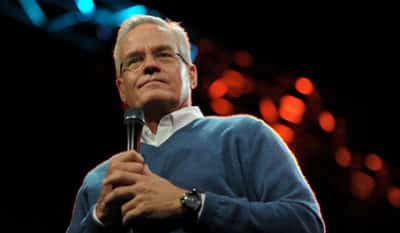
The early whistleblowers gave others courage, and the church’s denials made them defiant. Soon, the allegations we so numerous – and so credible – that Hybels was forced to resign. So did others in Willow Creek senior leadership who had backed Hybels uncritically.
Your tax-deductible gift helps our journalists report the truth and hold Christian leaders and organizations accountable. Give a gift of $30 or more to The Roys Report this month, and you will receive a copy of “Baptistland: A Memoir of Abuse, Betrayal, and Transformation” by Christa Brown. To donate, click here.
As the church was recovering from these hits to its credibility, more troubles followed. In January of this year, a longtime church member shared in a public Facebook post Saturday (Jan. 25) that Gilbert Bilezikian — known widely as “Dr. B.” — kissed, fondled and pressured her to have sex with him between 1984 and 1988. Bilezikian, a retired college professor who was for decades a mentor to Hybels, is considered one of the “founding fathers” of Willow Creek Church. Hybels himself once said, “There would be no Willow Creek without Gilbert Bilezikian.”
It appeared at first that Willow Creek leadership had learned its lesson. Acting lead pastor Steve Gillen acknowledged the accusations against Dr. B immediately. “We believe that Dr. B engaged in inappropriate behavior, and the harm he caused was inexcusable,” Gillen wrote in an email. Or so it seemed. It turns out the acknowledgement came a decade too late. Soon, it came to light that credible accusations against Bilezikian had been made a decade earlier, and the church’s elders had quietly restricted him from serving, but failed to inform the membership of Bilezikian’s problems. In fact, about that time, Willow Creek gave Bilezikian an award for his role in the development of the church.[pullquote]Soon, the allegations we so numerous – and so credible – that Hybels was forced to resign. So did others in Willow Creek senior leadership who had backed Hybels uncritically.[/pullquote]
These cover-ups were so pervasive, that now Gillen himself has resigned as the acting lead pastor. Further, the search for a new lead pastor – a role for which Gillen was also a leading candidate – came to a halt.
With all these problems, problems that have involved large numbers of senior leaders over decades, it is worth asking the question: What happened at Willow Creek? Are these problems anomalies, are they “baked in” to the kind of independent megachurch that Willow Creek became – and modeled for so many others?
To answer these questions, it is helpful to step back a few decades to look at the founding of what has become one of the most imitated churches in America.
Willow Creek’s Headwaters
Willow Creek Community Church and its dynamic and then young pastor, Bill Hybels, were in many ways strategically located to have an impact on the entire nation. For one thing, it is in the suburbs of Chicago, the third largest city in the United States.
Perhaps more importantly, it is also near some of the most influential Christian ministries and colleges in the country, including Wheaton College, Trinity Evangelical Divinity School, Trinity International University, and the Moody Bible Institute.
And the suburb of South Barrington, Willow Creek’s home, is the kind of edge city or exurb that has driven economic growth in the country in the last quarter of the twentieth century. In other words, it was one of the most affluent and fastest-growing towns in the U.S. In many ways, South Barrington in the 1980s was what America aspired to be.
Throughout the 80s and 90s, Willow Creek Community Church became what many churches aspired to be. It became the archetype of the modern evangelical megachurch. It grew from start-up to megachurch status (more than 2000 in regular attendance) in a matter of just a few years. By 2005 the church claimed 21,500 members, making it the sixth largest Protestant congregation in the United States. It eventually “topped out” at around 25,000 in 2015.[pullquote]Throughout the 80s and 90s, Willow Creek Community Church became what many churches aspired to be. It became the archetype of the modern evangelical megachurch. [/pullquote]
What really distinguished Willow Creek, though, was not just its size or the speed of its growth, but its influence on other churches. By creating the Willow Creek Association (now doing business as the Global Leadership Network), an organization that ultimately had thousands of churches as members, it has mentored others in its strategies and techniques for church growth.
Youth Group For Grown-Ups
Willow Creek, like so many megachurches and parachurch organizations, was born out of youth ministry—in this case, the youth ministry of another suburban Chicago church called South Park Church, in the nearby suburb of Park Ridge.
South Park Church itself was no mainline, old-school church. Though the mother of Willow Creek Community Church, it was barely an adolescent itself. Founded in 1947, South Park was also a nondenominational, evangelical church. In 1972 Bill Hybels began leading a youth group there. The group called itself “Son City,” and within a year the group had nearly tripled in size on the strength of Hybels’s personality and teaching and the style of the meetings themselves, which included the early ’70s equivalent of praise and worship songs.
Those who studied under Hybels have likely heard him say that every group needs a mission. In May 1973 Son City was intentionally reengineered to give it a more explicit mission: to be an outreach to nonbelieving youth.
Hybels saw the move as a way to continue to interest the youth who were already there. Growing the group became their responsibility, too. He wanted the kids to have a reason to come after the novelty of the informal worship service wore off, or was duplicated elsewhere.
This decision may seem logical and well intentioned. Indeed, many youth groups are considered outreaches of the church, not intended, or at least not primarily intended, for spiritual formation or discipleship. But that only shows the extent to which the Willow Creek model has become the dominant model of American evangelicalism, especially among youth ministry. In fact, Hybels’s decision to reach out to unchurched people and not “dig down” with current members was a turning point for Hybels, according to G. A. Pritchard, who wrote a critical history of the Willow Creek movement.
It was also a turning point in evangelicalism. One of the unintended consequences of a church that is constantly focused more on outreach than spiritual formation is that this model all but ensures that every generation has to be re-evangelized, since adults raised in such a church do not have the spiritual training to raise its own children in the nurture and admonition of the Lord.[pullquote]One of the unintended consequences . . . is that this model all but ensures that every generation has to be re-evangelized, since adults raised in such a church do not have the spiritual training to raise its own children in the nurture and admonition of the Lord.[/pullquote]
Pritchard is careful to say that none of these consequences were engineered out of malice or a desire for celebrity or empire. They were truly the unintended consequences of young men and women who were doing the best they could, the best they knew how.
The reengineered Son City grew rapidly. The young leaders of the group had numerical evidence to support the idea that God was blessing their efforts. By 1975 Son City had grown to more than a thousand young people, far more people than South Park Church had at that time. Indeed, the large group was no longer meeting at the church, having outgrown it, and some of the people attending had “aged out” of the original youth group, but they kept coming anyway and bringing their friends.
So in 1975, the leadership of Son City decided to implement the same “principles on an adult level by starting a church,” wrote Don Cousins, one of the organizers of the church.
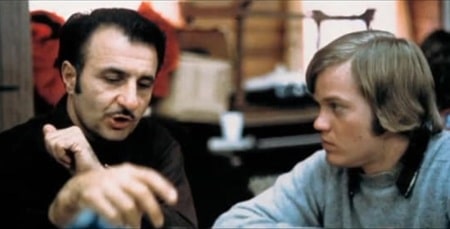
A key figure during that period was “Dr. B,” – Dr. Gilbert Bilezikian.
A Wheaton College professor, Gilbert Bilezikian is sometimes called the theologian of Willow Creek. Bilezikian was on a two-year teaching assignment at Trinity Evangelical Divinity School in Deerfield, Ill., when a young Bill Hybels came into his classroom in 1975. Hybels was deeply influenced by the Wheaton professor, and the young Hybels would ride his motorcycle to Wheaton to get advice from his former professor. In fact, it was on Bilezikian’s lawn one afternoon that Hybels said, “Dr. B., you and I are going to start a church.” That church, founded in a movie theater, became Willow Creek Community Church.
Most of the staff of the new church came from the staff of the youth group. This was an intentional decision. Because they were creating a new kind of church, Hybels believed they had to grow their staff from within, as those coming in from traditional church structures outside of Willow Creek wouldn’t “get it.”
This was another vital and defining decision. Because Hybels had little formal theological education and because the church recruited most of the leadership from the youth group, another unintended consequence was virtually guaranteed: the spiritual maturity of any new leaders would likely not rise above the level of the current leadership.[pullquote](B)ecause the church recruited most of the leadership from the youth group, another unintended consequence was virtually guaranteed: the spiritual maturity of any new leaders would likely not rise above the level of the current leadership.[/pullquote]
That would be fine if the church had somehow stumbled on a method or process for disciple making and spiritual formation heretofore unknown or lost somewhere in the history of the church. But it was a risky and presumptuous decision.
It’s likely, though, that the young leadership of the church understood neither the risk nor the presumption of the decision. Don Cousins, for example, defended the decision. “It is extremely difficult to judge a person’s character or spiritual authenticity in an interview. You have to see them at work for some time.” For this reason, Pritchard said, “Willow Creek does not like to hire individuals who haven’t demonstrated their character there.” This statement, in retrospect, is ironic and eerily prophetic.
One positive consequence of this strategy has been that, over the years, Willow Creek has seen stability among its senior leadership team that is uncommon. Pritchard said that during the time he studied Willow Creek, Hybels supervised three individuals in a management team who in turn managed the rest of the staff. Two of these three were students in the original thirty-member youth group.
But the other side of that coin is that it leaves one man—Bill Hybels—in firm control, and the leadership tends to be insular. Pritchard wrote, “Virtually all the church’s work has remained firmly in the hands of people who shared the common experience of the youth group.” A related consequence is that despite the fact that Willow Creek has gotten bigger and older, it remains essentially, in methodology and content, a youth group. Mike Breaux, who was a teaching pastor at Willow Creek, said Willow Creek was “youth ministry for big people.”[pullquote]Willow Creek was “youth ministry for big people.”[/pullquote]
Because Willow Creek is so intentionally youth ministry for big people, entertainment, or infotainment, is at the center of the church’s methodology. The founder of the youth ministry Young Life, Jim Rayburn, famously said, “It’s a sin to bore a kid with the gospel.” Willow Creek takes this admonition seriously, filling its sermons with drama and music, all strongly supported by state-of-the-art audiovisual accoutrement. Something is always happening on stage. And that activity is designed specifically to help “nonchurched Harry”—as Hybels often describes the generic seeker—see that church and Christianity are not boring. Pritchard quoted Hybels from one of the many pastors’ conferences that Willow Creek gives through its Willow Creek Association: “Variety, variety, variety, variety. You’ll get sick of hearing that in the next couple days. But friends, in every other environment except church, nonchurched Harry is exposed to variety.”
That nonchurched Harry might be coming to church to encounter something permanent and unchanging is a point lost here. That the church should be offering something permanent and unchanging, regardless of whether nonchurched Harry wants it or not, was – for many years — doubly lost.
Ideas Have Consequences – Bad Ideas Have Victims
Cracks in the Willow Creek veneer began to show up nearly 15 years ago, when Hybels himself admitted that the church’s brand of ministry has been a “mistake.” The confession came in the wake of a book published by Willow Creek. Reveal: Where Are You? was co-written by Willow Creek Executive Pastor Greg Hawkins and Callie Parkinson, who leads Willow Creek’s Reveal ministry. Reveal, and the book that bears the ministry’s name, promoted the results of a multi-year study on the state of the American church. The study suggested what many critics of the Willow Creek model have said for years: Most churches are not doing a good job of true disciple-building.
“We made a mistake,” Hybels said at Willow Creek’s annual Leadership Summit, where the results of the survey were presented. “When people crossed the line of faith and become Christians, we should have started telling people and teaching people that they have to take responsibility to become ‘self feeders.’ We should have gotten people, taught people, how to read their Bible between services, how to do the spiritual practices much more aggressively on their own.”
[pullquote]”We should have gotten people, taught people, how to read their Bible between services, how to do the spiritual practices much more aggressively on their own.”[/pullquote]Callie Parkinson told me then that the Reveal study would result in a “broadening of the movement. There’s been a breakthrough in our understanding.” But she reiterated that Willow Creek remains not just “seeker-focused. We are seeker-obsessed.”That means, according to Michael Horton, a professor at Westminster Seminary California, that American evangelicalism is likely to see “more of the same” from Willow Creek. “In the ‘seeker’ view, evangelism and outreach are spiritual technologies that must be made more efficient,” Horton said. “Having a survey tell you that you need to add ‘discipleship’ to the list of technologies that we’re trying to make more efficient doesn’t solve the fundamental problem.”
Is the use of surveys as a replacement for true spiritual discernment among evangelical church leaders at the core of the problem facing the modern church? Horton criticizes the idea of church, worship, or the gospel as “product,” and lost sinners as “consumers.” People, he said, “are not consumers who need to be satisfied. They’re sinners who need to be justified. Preaching is not a technology. It is a means of grace.”
Horton admitted, though, that though the “the state of the church in America today is poor, it’s a condition you can’t blame on Willow Creek alone. It’s increasingly difficult to swim against the tide of materialism, consumerism, and narcissism in the culture.”
Willow Creek had to weather another controversy in 2015, when one of its worship leaders – Darren Calhoun – spoke and helped lead music at a pro-gay conference in Atlanta called The Reformation Project. The Reformation Project was led by Matthew Vines, author of God and the Gay Christian, a book that was widely criticized by those who uphold a biblical standard regarding human sexuality.
Calhoun and Willow Creek defended his participation in the conference. “I’m a follower of Jesus,” Calhoun told me in a written statement. “My church community is Willow Chicago, the downtown campus of Willow Creek Community Church. There, I’ve served as a volunteer for eight years in various parts of our arts ministries including leading worship. … I’m also gay. As a Christian, I’ve been on a long journey to reconcile the reality of my orientation with the various views that the church world has on the topic of people who are attracted to the same sex. … At Willow, I was able to begin a journey of celibacy and prayerfully discerning what that means for my life.”
Willow Creek spokeswoman Heather Larson told me then that having an openly gay man in leadership at the church did not signal a change in direction for Willow Creek. (Though the Institute for Religion and Democracy’s Chelsen Vicari took issue with Willow Creek’s position on homosexuality as early as 2013.)
“Darren is held to the same standard that we have for everyone in our church,” she said. “He is able to serve in a worship role because he has committed to all of the characteristics outlined in our Leadership Covenant, which includes living a life of sexual purity. For Darren, this is a commitment to celibacy.”
Once again, the passage of time turned the statements of both Calhoun and Larson on their heads. Darren Calhoun left his volunteer worship position with Willow Creek Church and is now an openly gay activist calling for “more queer voices in the church.” When Bill Hybels was forced out as lead pastor in April of 2018, Larson got that job, then Gillen. The church’s lead teaching pastor, Steve Carter, also resigned on Sunday, saying he could no longer continue at the church in “good conscience.” The bottom line: Willow Creek’s practice of growing its own leadership meant there were few people in senior leadership roles whose credibility was untainted.
Or, as Bob Smeitana wrote in Christianity Today, “church leaders had been blinded by their faith in their founding pastor and had failed to hold Hybels accountable.”
Willow Creek elder Missy Rasmussen put it this way: “We trusted Bill, and this clouded our judgment.”
Picking Up The Pieces
A church the size of Willow Creek won’t just disappear, of course, but it does appear be shrinking. A source who asked not to be identified told MinistryWatch that weekly attendance at all Willow Creek campuses has fallen below 18,000. That’s down from 25,000 in 2015. The worship center at the main South Barrington campus holds 7,200 people and has three weekend services (one on Saturday night and two on Sunday). That means total weekend service capacity exceeds 21,000. Total attendance for all three services for the past few weeks was around 6000.
With the departure of Hybels, Larson, Gillen and so many others in senior leadership, and a “back to the drawing board” approach to finding a new pastor, it is not clear what the future holds for Willow Creek.
But G.A Pritchard’s 1996 book on Willow Creek also takes on an eerie resonance when read with the benefit of hindsight. He concluded:
“Imagine Hybels and his team attempting to save someone being swept down a swiftly moving river. Hybels reaches out to try to catch the unfortunate soul before he or she is swept away. Hybels is using the tools of our culture to reach out to the unchurched Harrys being swept away to the judgment. Yet in attempting to reach out to others in the fast-flowing river of our culture, Hybels and his followers also sometimes fall in.”
 Warren Cole Smith is president of MinistryWatch.com, a donor watchdog group. Prior to taking on this role, Smith was Vice President-Mission Advancement for the Colson Center for Christian Worldview. Warren also hosts the weekly podcast “Listening In,” a long-form interview program heard by tens of thousands of subscribers each week.
Warren Cole Smith is president of MinistryWatch.com, a donor watchdog group. Prior to taking on this role, Smith was Vice President-Mission Advancement for the Colson Center for Christian Worldview. Warren also hosts the weekly podcast “Listening In,” a long-form interview program heard by tens of thousands of subscribers each week.







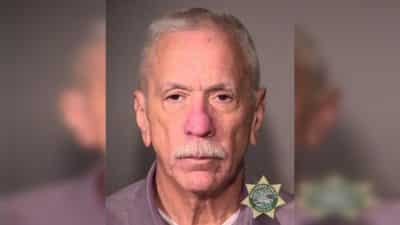
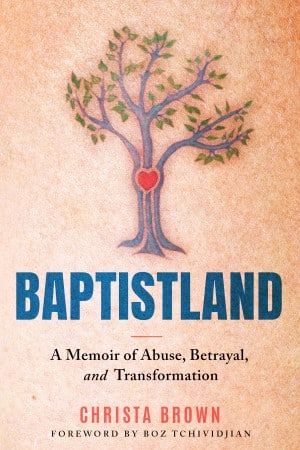
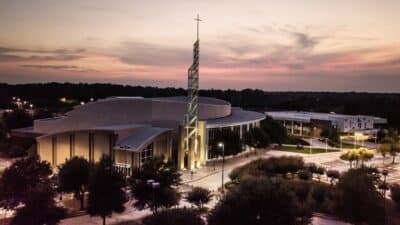
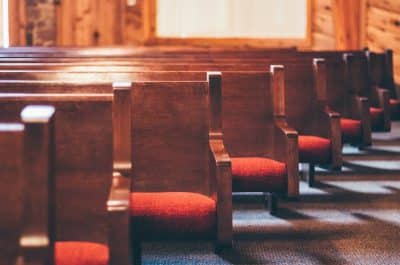
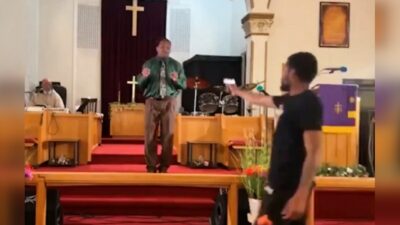

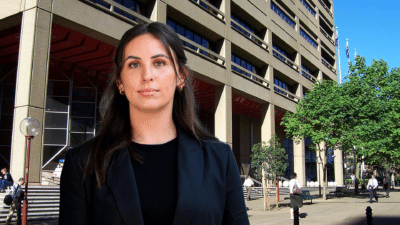







26 Responses
The outreach youth ministry was called Son City, Not Son Life. There also was a midweek service which focused upon believers and spiritual growth. This was called Son Village.
Thank you. I corrected the copy.
I sent this email but no reply.
To the elders at Willowcreek.
Please consider the possibility that God doesn’t want you to have a senior pastor.
Also see these thoughts I wrote in 2008.
https://sites.google.com/site/mydreamchurch/
Thanks for sharing. The church in the west is so steeped in tradition that we have read our traditions back into the N.T. to make the N.T. say things that’s just not there. It seems like what the reformers gave us was a refurbished brand of Roman Catholicism.
I was involved in church plants as a missionary in South America, came to faith in an all-Asian church plant in a big West Coast City (I was the only non-Asian but they evangelized me well), and am now part of a small, but growing and thriving Spanish congregation in Silicon Valley. The secret to the success of these congregations (most thriving from everything I currently know) was intentional, organized discipleship. It makes all the difference. You’ll always have immature believers in any church, but you really want to encourage spiritual growth for those who are willing. They become the models for growth, and others tend to follow their example.Growth may be slow in the beginning, but it snowballs rapidly as discipleship bears fruit.
The following quotes regarding why Gillen resigned and that Gillen was a leading candidate were stated as facts in your article. Please share your source for making these statements.
“These cover-ups were so pervasive, that now Gillen himself has resigned as the acting lead pastor. Further, the search for a new lead pastor – a role for which Gillen was also a leading candidate – came to a halt.
Yes, Mr. Smith, please provide your source for above statement regarding the reason for Steve Gillen’s departure. Ministry Watch previously reported (Emily Macfarlan Miller) “The church’s elders said that Gillen’s departure was prompted by the delay in finding a new senior pastor.” https://ministrywatch.com/new-revelations-rock-willow-creek-leadership-team/ .
I, too, would like to know the source of this info. I have heard the Steve Gillen’s contract was expiring. Not that he was resigning. We, as a congregation, have never been informed of the identities of the two being considered for senior pastor. Is there some communication that has been lost?
Thanks for a very informative piece. The two main takeaways for me is the youth-driven “outreach” model (not intended to lead to discipleship) & then the, of course, subsequent lack of discipleship within the church for those who graduate beyond the youth ministry & stay at the church. Son Life & Son Village make me think of the Sea Org youth group within Scientology. I attended a mass baptism event at an evangelical church last month & other than the 1-2 scriptures they read it was exactly like being at a secular rock concert. Very scary.
I think Willow Creek Community Church should close. Unfortunately, and I do mean unfortunately, the “stain” of recent events have resulted in creating “stumbling blocks” hindering the presentation of the Gospel. The difficulty of finding a Senior Pastor seems to be testament that WC, despite all the good it faithfully did for its fellow man these past 40 years [lives transformed, unselfish service to the least of these, countless souls introduced to Christ] is ready for a new mission. WC is split among some who are asking for more discussion, revelation and confession of sin and those who want to move on and allow WC to return to ministry. This division is not healthy for the effectiveness of the Body of Christ and certainly doesn’t engender an environment conducive to welcoming those in search of a [The] Savior. As with any church, it is vital that the life-saving message of Jesus is presented, practiced and encouraged in a setting of Peace where the only agenda is living, learning and accepting how much God the Father loves His people and has an eternal and holy purpose for each of them.
I think it best that WC inform its people to find a congregation where the Bible is central and foundational to the church’s mission. Churches would welcome those who are searching to serve, worship and learn and a fresh environment in a healthy fellowship would give new life to the person and the church community. I also think it best that the name “Willow Creek” be dissolved allowing whatever future purpose of the building and land to be free of any past “baggage”. Without any references to WC to be allowed to live on it would be MOST EXCITING to see, and for the world to witness, what God may do next with the facility and site. A Justice and Equality Center?, A L’ Abri of the Midwest where people could come and spend time getting answers to life’s questions? [why was I created and what is my purpose?, why does God allow bad things to happen to good people?, does He really care about events here on earth? and so many more], A church where disciples are raised up and sent into a needy world as Jesus hands and feet? A bible teaching college or seminary? An outreach center charged with meeting the basic/survival needs of The Creator’s men, women and children? etc., etc. Whatever God decides to do at 62 Algonquin Road may it lead to true revival turning the hearts of many to love the Lord their God with all their heart, soul, mind and strength!!
As do all of you, I trust God and believe everything He says. He brings great comfort and truth when He tells us: “Be anxious for nothing, but in everything by prayer and supplication, with thanksgiving, let your requests be made known to God; and the peace of God, which surpasses all understanding, will guard your hearts and minds through Christ Jesus”.
I pray for the spiritual well-being of every WC congregant. I’m confident our Heavenly Father wants them to rely on Him and Him alone during these days and may they all know He delights in them and has plans to prosper them. They mean so very much to Him. May God be glorified!! Amen
I became a believer through the ministry of Son City. On Wednesdays I would attend Son Village for in-depth bible study & discipleship. My spiritual mentor, Brad Wathen, became a missionary to Russia. I left Willow Creek in the mid 80’s due to leadership concerns. Two things can be true: That Bill Hybels is a flawed person, like all of us who are sinners, and God can still use the ministry in a significant way. Warren’s supposed exposition of the early years are flawed and leads me to believe that his bias does not reflect the nuances of the Son City ministry. In no way do I excuse Hybels behavior.
Henry, I’d be interested in specifics about what nuances you feel need to be added.
The article leaves the decided impression that Willow Creek & Son City were failed ministries from their inception because they were conceived wrong. Let’s be clear, the ministry grew in impact because mainline churches were dying and evangelical churches decided look only inward instead of outward. If a new believer had long hair and did not act in accordance to 1970’s church culture they were written off. Son City had a huge impact in the Northwest Suburbs. Yes, Bill Hybels had failures as a Christian leader. However, God works even through imperfect people. My life, my brother’s life and other strong believers are a testament to the ministry of Son City & Willow Creek. And yes, their was in depth bible study & spiritual formation.
Hi Henry. My family attended the church for a couple years when I was in middle school (late 80s)
Here’s a link to an article I think you’ll find interesting. Maybe you’ve seen it before. https://drive.google.com/file/d/1IXc1TTOLkEJm-mi40a2xaxmImi0Ku2fj/view
It’s essentially a history of Willow’s founding and early days, published in 1990 in their own magazine. From reading both this article and the Pritchard book that Warren Cole Smith mentions in his post, I’m left with the impression that Son City and Willow were founded/rooted in a false, self-indulgent gospel that emphasized feelings and emotional experiences.
Hybels’ salvation story – as articulated in “WCCC – An Inside Look at the Early Years” – is notably devoid of an awareness of his own sin. Instead, he says he was converted by the idea that Jesus loves him. Yes, “Jesus loves me,” but that’s an incomplete gospel, at best. I’d be interested in links to other accounts of how Hybels says he came to saving faith in Christ.
We know that “faith comes by hearing, and hearing by the Word of God.” (Romans 10:17) When and where the Word of God was spoken at Willow – even simply by the reading of Scripture itself – people were saved. I agree that God is in no way hindered by context or messenger, e.g., Balaam’s donkey.
Jessica, you are stating that Willow Creek was founded on a false indulgent gospel. Does that mean that my salvation experience is in question?
I can’t speak to what your salvation experience was or what you believe. Above, I said, “When and where the Word of God was spoken at Willow – even simply by the reading of Scripture itself – people were saved.”
We attended a church several years ago whose leaders annually visited Willow Creek as if they were going on a spiritual pilgrimage. As spiritually-grounded parents of young children, we questioned the teaching materials that we found crass and flippant of the Bible. There was an intentional effort to separate children from their parents, and to use 6th-12th graders to teach K-5th. (I guess kids are fully developed Christians by age 12). Additionally, the children’s worship incorporated primarily secular music including “Let’s Get it Started,” “Walk Like an Egyptian,” and “Free Ride.” When I questioned the use of “Free Ride,” an elder responded that grace is free. I said that it came at a terrible cost. We did not stay. Sorry for those who bought into the lie and those who were damaged along the way.
To me it is so very simple what went wrong. It is right there in the Lord’s Prayer that we love to recite without actually understanding what it is saying to us. “Your Kingdom come, and your will be done on earth…” Very few Western Christians have much of an idea of what His Kingdom actually is. And while we may vainly echo and recite the prayer, what does it look like, practically, for His will to be actually done? This “church” decided to give the people what they want, not what God wanted. The cart went before the horse and pulled the whole thing right into the ditch. Jesus was never (and from what I can tell) is still not the actual Lord over this “church.” This fruit is not what God ever wanted. The fruit has to be the litmus test, or else we are just the blind following the blind. Even a little child could easily tell that. Time to submit to the King again. What WE want should never be the driving force…
I was a ‘volunteer extraordinaire!’ at Willow Creek from 1988-1993 and then felt called by the Holy Spirit to a church in infancy stages called Harvest Bible Chapel. Never once(!) did
Bill Hybels, Dr. B. or James MacDonald make inappropriate comments or sexual advances towards me. I AM so sick and tired of the #Me Too Movement that’s ripping this country and God’s Bride / the church into shreds. ENUF is ENUF! I choose not to believe the malicious accusations and relentless attacks and think they are more likely a sign of the times, i.e., “Be of sober spirit, be on the alert. Your adversary, the devil, prowls about like a roaring lion, seeking someone to devour and destroy.” – 1 Peter 5:8
Come, JESUS, come! Now, JESUS, now! Beam me up!
Vicki Chasen
Soul Queen (of another kind)
San Diego, CA
Vicki,
I’m pleased and grateful that your experiences at Willow Creek and Harvest Bible did not include inappropriate conduct or sexual advances.
However, that doesn’t mean that other people did not experience them.
Would you say that your neighbors’ house cannot have been robbed because your own house was not?
Although the criticisms of Willow Creek’s model maybe be warranted to a certain degree, there is very little truth of evidence that the Traditional church models are doing as better job of producing fully devoted disciples of Christ as well. All the drill down going on hasn’t produced more fruit. If anything it produces more exclusive, judgemental, self serving, self absorbed, protective communities. Sure there are those rare believers who actually get planted and sprout good fruit for His Kingdom but it’s really more Same Old Same Old. Different denomination….same Church. Willow definitely had it’s strengths. You could go there and feel welcome regardless of your social status, spiritual maturity, etc. Present controversy and conflicts aside (and I support the Women and pray for complete accountability and repentance) I certainly do not want to be tied to that old stuffy unfriendly unloving church models of my youth as my only option.
Agreed. Legalistic is a word I learned at attending a service at Willow. The old church is very Legalistic. I grew up in a Pentecostal church and only harm was done to me as a person which took years to get over. I feel most called Christians are very self-righteous and feels they have the how things should be. But Christianity should be quite simple:
Decide to follow Jesus? Great! Here is a bible. Read it. Talk directly to God for wisdom and Pray to him for direction for your own life (not the other person’s life as if you deciding what is right or wrong for someone else). You will only be judge by God himself, no one else. Share the Gospel as in how it changed your life (but do not impose onto others rules other than sharing:) “Here is a bible. Read it. Talk directly to God for wisdom and Pray to him for direction for your own life.”
As simple as that, it solves all issues with old and new churches, LGBTQ, murders. war criminals, etc. Let GOD be the Judge.
CHURCH is a human institution and organization. IT WILL ALWAYS BE FLAWED. As we humans in our capacity are flawed. Too much time is spent on the “perfect” “Godly” Church on earth, which is an oxymoron. More focus should be put on us Humans as flawed creatures that even re-born, believers, will still sin everyday, and should embrace forgiveness, and embrace our own shortcomings in connecting to other humans when they are different than us in color, race, gender, education, social status, economic wealth, religion, sexual orientation, etc.
Is your God a God of inclusiveness or exclusion – you have the power to choose.
Very true and very accurate assessment. The form/structure of a ‘worship’ service – where 90% of the activity takes place on the platform [1] Creates a “platform service” more than a ‘worship’ service and [2] Creates passive participants 52 weeks out of the year instead of developing a proactive faith, an intelligent faith… So we are still dependent on the person up front and his teaching/preaching ability, instead of being taught to study and think and pray for ourselves – to apply God’s Word in our own lives. Reinforce this “platform” service 52 weeks of the year, by 1,700 years when it first began – and we have a lack of discipleship DNA within Christianity. Then we wonder why we are losing millions upon millions of young people and leaders within Willow Creek continue to wonder why they are losing members and attendance is going down, down, down, when they continue to act from an insulated and isolated worldview where they know best how to do damage control instead of practicing Christ-centered authenticity.
I have been attending Willow since 2004. Attendance is down quite a bit. There used to be sectional groups (200 people or so) but seems like the majority of folks in my section have left. I don’t know; maybe that typical of church in general to have turnover like that. There still are great guest speakers trying to help out – Eugene Cho and Albert Tate. The church has no debt; financially secure as far I know. Has a great Care Center to serve the needy. Definitely going through a transition. Lack of spark. Lack of energy. Hopefully a new leader will move it out of the desert.
For other foundation can no man lay than that is laid, which is Christ Jesus. Now if any man build upon this foundation gold, silver, precious stones, wood, hay stubble; every man’s work shall be made manifest; for the day shall declare it, because it shall be revealed by fire; and the fire will try every man’s work of what sort it is. If any man’s work abide which he has built thereupon, he will receive a reward. If any man’s work will be burned, he will suffer loss; but he himself will be saved; yet so as by fire.” I Corinthians 3:11-15
“Not every one that says unto me, Lord, Lord will enter into the kingdom of heaven; but he that does the will of my Father which is in heaven.” Matthew 7:21
Folks!” Straight is the gate and narrow is the way and FEW there be that find it.”
Jesus said, “to do my will, know my doctrine.” John 7:17
WOE UNTO THE MODERN-DAY CHURCH!
First, thank you for all the details and data in this and other WC abuse related articles. I left WC in 1999 after observing and/or experiencing similar non biblical behaviors (not sexual) in running the church and its ministries. Need clarity on: 1. why is a church/non profit, its leaders and elders above the law? Not held accountable? Given the current similar Harvey Weinstein situation why have no suits been filed to legally fully investigate? While sexual harassment is not a crime, forced sex in order to keep one’s employment along with forced silence from “corporate board leaders and authorities” can be. Where is the legal perspective? 2. The victims, elders and members worshiped the sanctity of the church above the sanctity of the Word and educated a culture to ensure such – where is accountability? Why are “Christians” still attending and tithing? Where is validation and proof of culture and process change at WC instead of just finally admitting the victims were correct all along, terminating leadership while accepting resignations? 3. Apology to the victims is not enough – new life in honor of those victims is a more important repentance and reconciliation – in the form of a new church with truly biblical processes and leadership – however, should be whatever those victims deem. Have they been solicited? Have they shared?